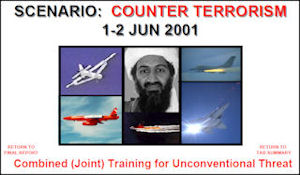Guest Post by Kevin Ryan, former Site Manager for Environmental Health Laboratories, a division of Underwriters Laboratories (UL). Mr. Ryan, a Chemist and laboratory manager, was fired by UL in 2004 for publicly questioning the report being drafted by the National Institute of Standards and Technology (NIST) on their World Trade Center investigation. In the intervening period, Ryan has completed additional research while his original questions, which have become increasingly important over time, remain unanswered by UL or NIST.
The U.S. Secret Service failed to do its job on September 11, 2001 in several important ways. These failures could be explained if the Secret Service had foreknowledge of the 9/11 events as they were proceeding. That possibility leads to difficult questions about how the behavior of Secret Service employees might have contributed to the success of the 9/11 terrorist attacks. Answering those questions will require the release of existing interview transcripts as well as follow-up questioning, under oath, of a few key people within the agency.
The most glaring example of Secret Service failure on 9/11 was the lack of protection for the President of the United States after it was well known that the country was facing terrorist attacks on multiple fronts.The interesting thing about this was that it was not a consistent approach. That is, the president was protected by the Secret Service in many ways that day but he was not protected from the most obvious, and apparently the most imminent, danger.
President Bush had been at risk earlier that morning when Middle-Eastern looking journalists appeared at his hotel in Sarasota, Florida claiming to have an appointment for an interview.A Secret Service agent turned them away in a move that might have saved Bush from an assassination attempt. [1]
Bush then traveled to an elementary school for a community outreach photo opportunity which had been well-publicized for several days. It was reported that “Police and Secret Service Agents were on the roof, on horseback and in every hallway” at the school. [2]Every visitor at the school was required to attend a preparation meeting two days before, and all the phone lines had been tapped.The school’s principal stated – “It was the safest place in the world. If you blew your nose and it wasn’t time for you to blow your nose, they knew it.” [3]
